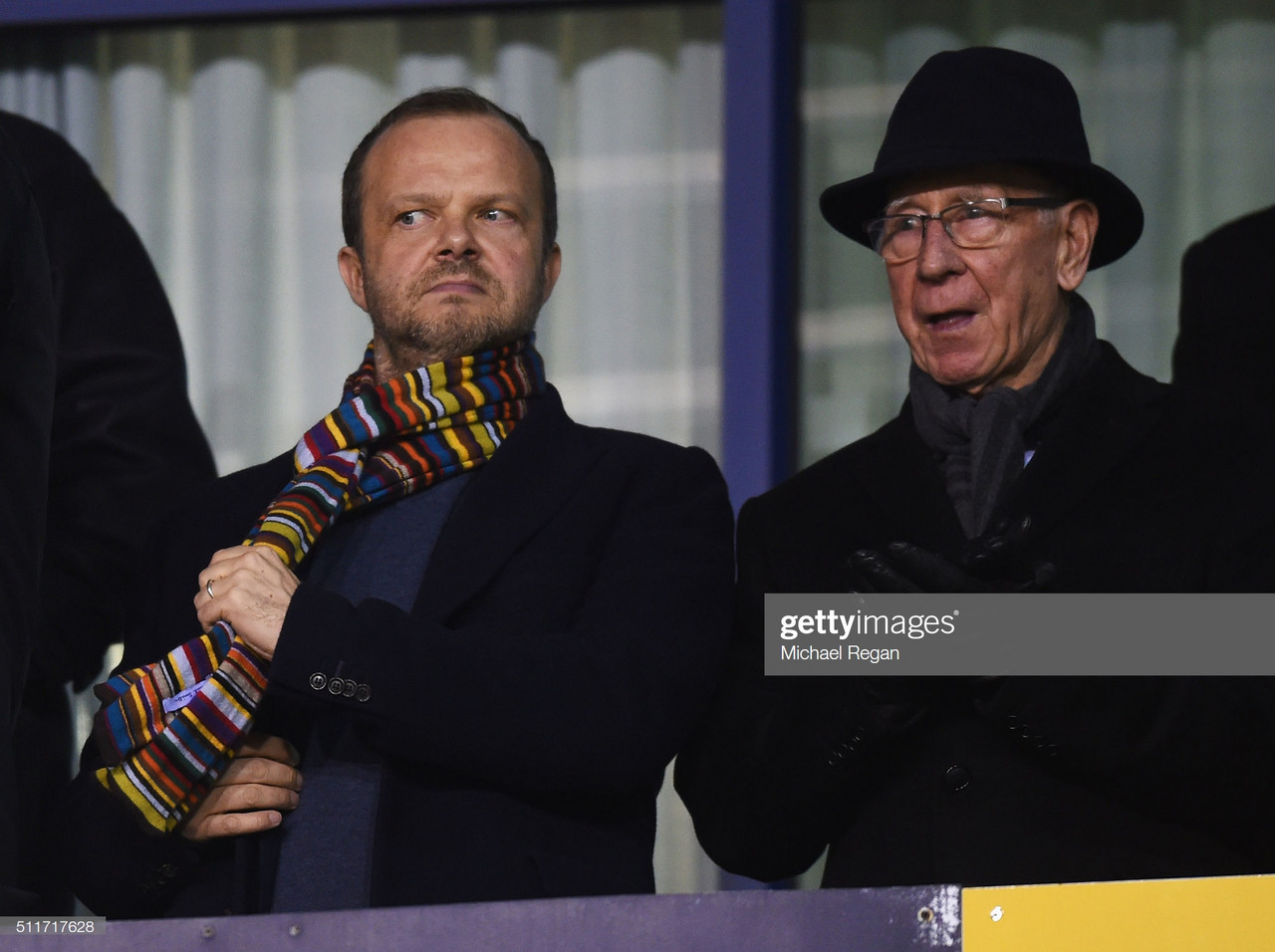Leaving Old Trafford after a squalid final chapter to a schizophrenic season, Manchester United’s long-suffering supporters were treated to a final insult; a fifty-foot banner adorned with the faces of Romelu Lukaku and Alexis Sanchez, underneath which was the DHL slogan: We Always Deliver. The irony was not lost among those upbeat enough to be in good-humour. It made a strong statement about what the club had become: Old Trafford, reduced to a billboard-cum-conference centre, hosting occasional football matches
And yet the poster, in some ways, was entirely accurate. United delivers exactly what it claims to. Its shareholders profit every year. Its sponsors benefit from its global brand.
The Glazers, for want of a better analogy, represent J.K Rowling’s gruesome dementors, who fed on positivity, slowly sucking the life out of their victims until all that remained was a soulless, miserable shell. The Glazers fed on Alex Ferguson’s success for just long enough for their leeching to become normalised. Since his departure, the spirit of Manchester United has been sucked dry.
A club that has betrayed its origins
Ed Woodward, the former J.P Morgan banker who facilitated the Glazers leveraged buyout in 2005, has proudly stated that his father was in attendance to see United win the European Cup in 1968. One wonders how repulsed those at Wembley would be to see the manifestation of the club he has created today.
For years the managers job at Old Trafford has been akin to reverse-musical chairs – whoever grabs the seat loses. Woodward has shifted the blame from one man to the next, leaving ruined careers and millions in compensation in his wake. Moyes – Ferguson’s appointee, out of his depth. Van Gaal – the authoritarian whose dour football made his departure inevitable. Mourinho – the world-beater whose betrayed the club with his scorched earth management style.
Woodward’s incompetence is only outweighed by his cowardice, but in a final effort for self-preservation he may have left himself exposed.
Appointing Ole Gunnar Solskjaer on a permanent basis must have seemed like genius as he lay awake at night following United’s miraculous comeback against Paris Saint-Germain. Solskjaer was the conciliator, the man for all personalities, able to conjure up the United spirit of old. But more importantly, he allowed Woodward a new avenue through which he could focus the blame away from himself.
Having let two obvious managers in waiting join United’s fiercest rivals, Woodward finally had a chance to make a calm, considered decision. Mauricio Pochettino was beginning to lose trust in Daniel Levy; he had been forced to go an entire season without additions to the first team squad. In that time he had turned previously average players into tireless competitors, blooded young talents, and fostered a team spirit to rival any at Liverpool and Manchester City. This was the chance, then, to place United back on track.
United: whe re the bottom line is the top priority
However, there was a catch. Pochettino, firstly, would cost the best part of £50m to poach from Tottenham, and
What luck, then, that a solution seemed to present itself. Solskjaer, the club legend, the free transfer. The inexperienced choice. The man whose connection to the club buys Woodward credit for his appointment, and whose managerial naiveite excuses Woodward blame for his failure.
What luck, that a man whose ‘United DNA’ credentials rival any other, could lead the team onwards. If he couldn’t inspire these players, who could? It wasn’t the club that was rotten, it was its representatives. Overpaid; underappreciative. Solskjaer would set them right, and if he couldn’t then, well, they had no business being here in the first place.
Woodward is more canny in understanding the club’s global fanbase than many realise, despite the fact that his appreciation of its traditional support seems absent. Fans are fickle, even though long-time supporters are not. Solskjaer’s appointment would shift the emphasis onto the players, whose failure would shift the blame back onto Solskjaer. If a club legend leaves Old Trafford with his reputation in tatters, so be it. Woodward’s job is safe.
This was his mistake, however. Old Trafford has protested before, and it will do so again. The momentum behind the Green and Gold movement in 2010 was startling, coming off the back of three straight Premier League titles and back-to-back Champions League finals. Imagine the energy it would gather after a decade of mediocrity.
Woodward may suffer from Solskjaer’s hero status
Solskjaer’s appointment has not bought Woodward more time, it has given him less. He may not have been the right man for the job, but Solskjaer’s stock with fans will not nosedive like that of Mourinho and Van Gaal. Old Trafford won’t stand by and see one of its most favoured sons humiliated and discarded.
Time is up for Woodward, there are no more scapegoats to expose. If Solskjaer is abandoned like his predecessors, the Chief Executive’s seat in the Director’s Box will begin to feel less and less secure by the day.










































